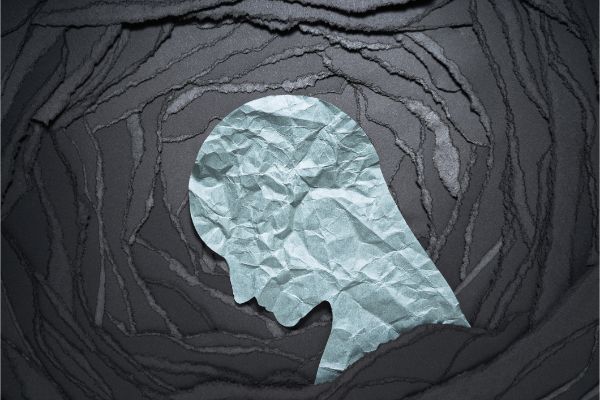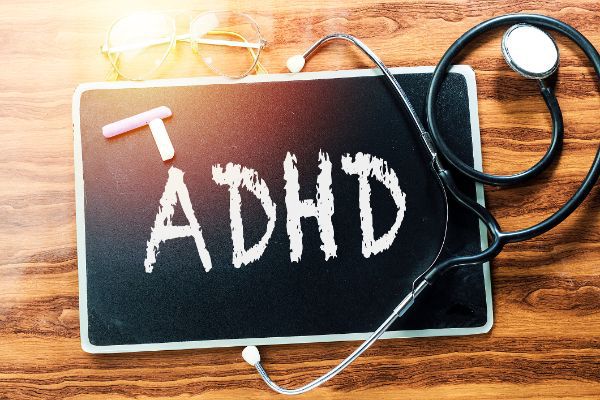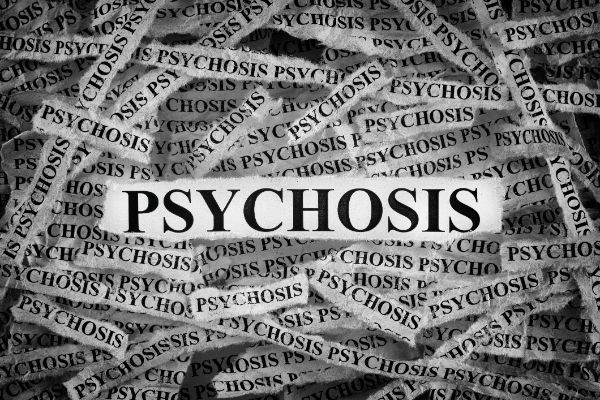|
According to a recent report released by Disability Rights NC, suicide and drug overdose deaths are on the rise in North Carolina jails. According to the report, as of November 2019, there had been 17 suicides compared to 12 in 2018. In addition, the report notes that the rate of drug overdose doubled from 2017 to 2018. About 80% of suicides occur during an inmate's first 12 days in jail. All of these individuals were people who had been arrested but not convicted of a crime.
Disability Rights Report The report notes that “being arrested and jailed in North Carolina carries with it an unacceptably high risk of death or serious injury.” It also states that “the continuing rash of deaths and related lawsuits demonstrate the urgent need for changes to protect our jailed NC residents.” Disability Rights NC recommends sweeping changes to help stem the tide of needless deaths. The jails should have an active suicide prevention program. In addition, there should be improved screening for mental illness and substance abuse. Rule Changes Lawyers for Disability Rights say that North Carolina needs to make changes to its 25-year old rules. There should be a focus on making the facilities safer for inmates. Rule updates have been proposed but were criticized by the NC Sheriff’s Association. This stalled them from being put into effect. Among these rule changes were alterations to the way officers observe inmates during their rounds to ensure they are safe. Several investigations into deaths at the jails noted that officers failed to properly check on inmates prior to their deaths. Rule changes also included enhanced screening of inmates for mental illness when they first arrive at the jail. Another rule change would have required the implementation of a suicide prevention program. Unless they are further delayed, these rule changes are set to go into effect in the spring of 2020 when the legislature reconvenes. If you or a loved one has a mental disability and has been arrested or convicted of a crime, you need an experienced criminal defense attorney on your side. Elizabeth Kelley specializes in representing individuals with mental disabilities. To schedule a consultation call (509) 991-7058. A recent study suggests that the prevalence of attention-deficit/hyperactivity disorder (ADHD) among adults has increased steadily over the years. The study found that within the Kaiser Permanente health system, there were increased rates of adults diagnosed with ADHD regardless of whether they were diagnosed as children or as adults. Over the ten-year period between 2007 and 2016, there was a 43% increase in the number of adults diagnosed with ADHD.
The Study The study looked at the electronic health records of 5.2 million adults who received healthcare through Kaiser Permanente in Northern California between 2007 and 2016. Researchers analyzed the data for the prevalence of ADHD diagnoses and also looked for any racial differences. The study found an increase in ADHD diagnoses across all races. White adults consistently had the highest prevalence. The study had some limitations. It did not analyze what happened after an adult was diagnosed with ADHD. There was no information about what treatment approaches, if any, were used to treat the diagnosis. In addition, the study did not look at patients outside the Kaiser Permanente system, which could include low-income patients. Reasons for the Increase The main reason posited for the increase in diagnoses is the fact that healthcare providers are more open to looking at ADHD as not just a disorder that affects children. The recognition of ADHD in adults is increasing, which is leading to more diagnoses. The hope is that ADHD is more frequently recognized in treated in adults. The increase in diagnoses is also the result of an increase in individuals seeking psychiatric care in general. This demonstrates a positive trend in reducing the stigma associated with mental health issues, including ADHD. While ADHD is now recognized as one of the most common disorders in childhood, it was not recognized as a diagnosis for adults until the last fifteen years. Researchers hope that this study will lead to further research throughout the United States. The prevalence of ADHD in the adults in the study is lower than the national average. If you or a loved one has a mental disability and has been arrested or convicted of a crime, you need an experienced criminal defense attorney on your side. Elizabeth Kelley specializes in representing individuals with mental disabilities. To schedule a consultation call (509) 991-7058. In October of 2019, the New York City Council approved a plan to close the Riker’s Island jail complex and replace it with four new borough-based facilities by 2026. The plan comes with an estimated $8.7 billion in construction funds. In addition, the city council voted to include in the plan $391 million to assist with criminal justice reform and efforts to reduce the jail population.
One of the most complicated issues facing officials when it comes to jail reform is the estimated 43% of inmates in New York City who suffer from a mental illness. One-third of these inmates have a severe mental illness and require intensive treatment. Many see the new focus on rehabilitation as a step in the right direction toward changing the approach the criminal justice system takes with regard to mental illness. New Facilities The closure of Riker’s Island has been discussed for decades. Recent issues with the approach employees of the facility take towards the mentally ill have shed light on overall problems with the jail that houses approximately 7,000 inmates at a time. New facilities will be built in each of the city’s boroughs with the exception of Staten Island. Each facility will hold approximately 885 inmates. There will also be beds available at existing hospitals for inmates who require medical care. The goal of the new facilities is to provide, among other things, a better environment for inmates. This includes better access to mental health care for those who need it. About 40% of the beds in the jail will be therapeutic housing units to account for inmates with mental illness. Community Services Critics of the plan argue that the goal should ultimately focus on reducing the number of mentally ill inmates. The city plans to focus funds on community-based mental health treatment and alternatives to incarceration. The community investment package voted on by the city council will hopefully provide for expansion of programs that provide discharge and reentry services for the recently incarcerated. The city also hopes to reduce the jail population by changing the approach police take to individuals in a mental health crisis. If you or a loved one has a mental disability and has been arrested or convicted of a crime, you need an experienced criminal defense attorney on your side. Elizabeth Kelley specializes in representing individuals with mental disabilities. To schedule a consultation call (509) 991-7058. Mobile phone apps are typically a large part of teen life. Social media, games, and other apps are used by teens on a daily basis. Now some new apps are available that may help teens who are undergoing mental health treatment.
Research In research focused on non-medication alternatives to the treatment of severe mental health disorders, the University of Minnesota has been testing a number of apps to help teens. The study of the apps will be a contribution to a larger federal study of teens and young adults experiencing their first bout of psychosis. Researchers are hopeful that these apps can offer brain training and social support to teens who experience delusions and hallucinations. The Apps The two apps currently being tested at the university include BrainHQ and PRIME. Brain HQ is a commercially available app that researchers hope will improve cognition in teens with mental health issues. The app has been tested for its ability to help people with multiple sclerosis and those who have memory loss after cardiac emergencies. The app contains a number of exercises that a user performs with the aim of improving cognition. These exercises include a facial recognition game where users are given a brief image of a face and then have to match the face with an emotion. Improvement in cognition is important for individuals with severe mental health issues because disorders such as schizophrenia and psychosis can lead to problems with memory and thinking. PRIME is a social networking app that researchers hope will help motivate teens and young adults during mental health treatment. When a teen experiences the symptoms of psychosis, they can feel isolated, scared, and ashamed. PRIME offers a secure platform where teens and young adults can interact in a group text about their symptoms and treatment. This connection to others who are experiencing psychosis can help stem the feelings of isolation. It's important, especially during the teen years, to develop meaningful relationships, and these connections can be helpful during treatment. If you or a loved one has a mental disability and has been arrested or convicted of a crime, you need an experienced criminal defense attorney on your side. Elizabeth Kelley specializes in representing individuals with mental disabilities. To schedule a consultation call (509) 991-7058. Some young people experience mental health crises that can be confusing and alarming. In the case of psychotic episodes, not all young people receive the support they deserve. Studies have shown that early intervention is crucial for the treatment of psychosis and results in better outcomes. Without early intervention after a psychotic episode, a person can become chronically disabled and may end up homeless or incarcerated.
What is Psychosis? The word psychosis is used to describe conditions that affect the mind to the point where there is a break from reality. When a person has a break with reality, it is known as a psychotic episode. During a psychotic episode, a person becomes confused, and their thinking is altered. They may not be able to distinguish between what is real and what is not. Symptoms of psychosis include delusions (false beliefs) and hallucinations (auditory and/or visual). During a psychotic episode, a person may become anxious or depressed, have sleep problems, or lose their overall ability to function. Psychosis may be a symptom of a mental illness such as schizophrenia or bipolar disorder. It can also be caused by other factors such as sleep deprivation and prescription medication. Early Intervention Research has shown that when it comes to psychosis, early intervention is key. When an individual receives treatment after their first psychotic episode, it is likely they will never experience another episode. Early intervention helps preserve key factors in a person's life, like personal relationships and work or school. Currently, nationwide, the median time between the first signs of psychosis and treatment is a year and a half. That is six times longer than the World Health Organization's recommendation of three months or less. States like California are working toward increasing the level of early interventions available. In 2019, Governor Gavin Newsom signed a bill that would provide $20 million to create early intervention programs and expand those that already exist. Each year, in California, an estimated 8,000 adolescents and young adults experience their first psychotic episode. Unfortunately, California does not have a centralized mental health care system, and it is up to each individual county to decide whether to provide early intervention services for psychosis. If you or a loved one has a mental disability and has been arrested or convicted of a crime, you need an experienced criminal defense attorney on your side. Elizabeth Kelley specializes in representing individuals with mental disabilities. To schedule a consultation call (509) 991-7058. Many members of the military return home suffering from the effects of post-traumatic stress disorder. Therapy and medication have been the main form of treatment for this disorder. However, now, a recent clinical trial has found that an injection may be an effective treatment for PTSD.
Clinical Trial Results of an Army-funded clinical trial on 108 active-duty service members have found that an injection in the neck is an effective treatment for PTSD. The injection is called a stellate ganglion block or SGB. Two injections were given to the patients two weeks apart. Two-thirds of the patients received the SGB injection while one-third received placebos. All patients took the Clinician Administered PTSD Scale assessment before the treatment and eight weeks after the treatment. The trial found that the SGB injections reduced PTSD symptoms at a rate close to twice that of placebos. Researchers were surprised by the magnitude of the difference. Army physicians believe that this is the definitive controlled trial and that the injection should now be available as part of PTSD treatment plans. The Procedure During an SGB procedure, a doctor injects a local anesthetic deep into the stellate ganglion, which is a cluster of nerves in the neck. An ultrasound is used to pinpoint the accuracy of the injection. These nerves are used to help regulate the body's "fight or flight" response. This response can become erratic in people with PTSD, and it is believed that the injection can help regulate the response. Researchers aren’t quite sure how the injections work, but they know that they do work. Reports of marked improvement as a result of the injection have come from veterans, first responders, and victims of childhood trauma. Marine Sergeant Henry Coto reported to Bill Whitaker of 60 Minutes that the injection was life-changing. He believed that without the injection, he would have either died or ended up in jail. If you or a loved one has a mental disability and has been arrested or convicted of a crime, you need an experienced criminal defense attorney on your side. Elizabeth Kelley specializes in representing individuals with mental disabilities. To schedule a consultation call (509) 991-7058. 2/7/2020 federal judge says the u.s. must provide mental health care to families at the borderRead Now In November 2019, a federal judge in California ruled that the U.S. government must provide mental health services to the thousands of migrant families that have been separated at the U.S.-Mexico border.
State-created Danger Judge John Kronstadt of the United States District Court in Los Angeles relied on the legal doctrine of "state-created danger," finding that the federal government is liable for the psychological trauma on families separated at the border. The ruling came after a lawsuit was filed by a group of migrant families who argued they suffered life-altering psychological trauma that could continue to affect their health for years to come. The families cited instances where they didn’t know for months where their family members were located and were unable to communicate with them. This case marks a rare instance where the government has been held responsible for its actions and policies causing mental trauma. Under its “zero-tolerance policy” between 2017 and 2018, the government forcibly removed children from their parents and prosecuted those who crossed the border illegally. The policy was suspended in June of 2018 amid public outcry. The court found the zero-tolerance policy created severe mental trauma to parents and their children. The court’s order represents a situation where the government is being held accountable for creating a danger that inflicts trauma. The government is now tasked with providing a solution. Solutions to the Trauma The federal government must now institute mental health screenings to the thousands of families that were separated at the border in 2017 and 2018. The government must also immediately provide mental health treatment to these individuals. It may be a requirement that these services be provided on a long-term basis. The process may be expensive and cumbersome as many of these migrants are now spread across the country. The families are also in various stages of immigration proceedings. It is presumed that, given the cost and burden of this order, the federal government will appeal, saying that the court got it wrong. If you or a loved one has a mental disability and has been arrested or convicted of a crime, you need an experienced criminal defense attorney on your side. Elizabeth Kelley specializes in representing individuals with mental disabilities. To schedule a consultation call (509) 991-7058. Bobby Moore, who has been on death row in Texas for 39 years, officially had his sentence changed to life in prison in November 2019. Moore is now 60 years old and was sentenced to death for the 1980 shooting of a store clerk during a robbery in Houston. His attorneys have consistently argued for years that Moore was intellectually disabled and, therefore, should not be subject to the death penalty.
U.S. Supreme Court The Texas Court of Criminal Appeals has repeatedly found that Moore was not intellectually disabled despite clear arguments to the contrary. The court ruled twice that Moore was not intellectually disabled. Texas courts previously relied on outdated medical standards and a set of controversial factors created by judges. However, when the case went back to the U.S. Supreme Court, the justices clearly ruled that Moore had demonstrated that he was intellectually disabled. The ruling came in February of 2019. This tied the hands of the Texas Court of Criminal Appeals, and they were forced to find him exempt from the death penalty. The Supreme Court's opinion criticized the Texas court for relying on the same standards that had previously been overturned. Moving Forward The Texas Court of Criminal Appeals was forced to implement the Supreme Court’s ruling and overturned Moore’s death sentence. Since Moore was originally sentenced in 1980, the law as it stood at that time applies to his new sentence. This was before the punishment of life in prison without the possibility of parole was enacted. Prisoners sentenced to life in prison were eligible for parole after 20 years. This means that Moore will automatically be eligible for parole. It is likely, however, that the Harris County District Attorney will oppose parole for Bobby Moore. If you or a loved one has a mental disability and has been arrested or convicted of a crime, you need an experienced criminal defense attorney on your side. Elizabeth Kelley specializes in representing individuals with mental disabilities. To schedule a consultation call (509) 991-7058. |
Details
Archives
March 2024
Categories |








 RSS Feed
RSS Feed